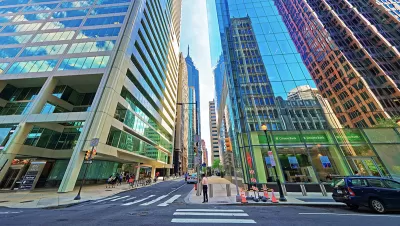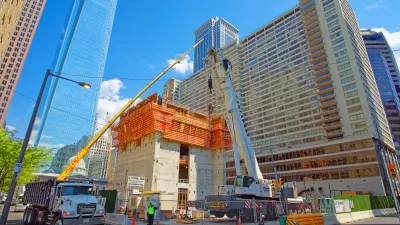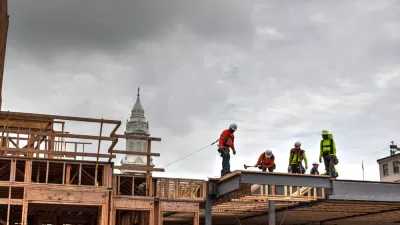A recently proposed law would attempt to force developers and neighborhood projects to the table to negotiate large projects in the city of Philadelphia.

Philadelphia City Council President Darrell Clarke recently introduced legislation that would mandate community a benefits agreements process between real estate developers and neighborhood groups for developments "High Impact Development Projects" and projects receiving city support, according to an article by Jake Blumgart.
"A handful of community organizations in Philadelphia secure these kind of contracts already, negotiating with developers to win amenities or services in exchange for support of large projects," according to Blumgart.
Council President Clarke based the legislation on a law in place in Detroit. Like the law in Detroit, the negotiation is necessary, but an agreement at the end of the process is not required.
So far, it seems like developers are waiting for more details before passing judgment on the bill. "The development industry reaction to the bill was muted, perhaps because Clarke introduced it on the second to last City Council session before the summer recess. That means it won’t receive a hearing until fall," reports Blumgart. The article gleans as much detail about the process would look like and the kinds of projects that would require the additional steps.
FULL STORY: Force big developers to offer community benefits? Philly’s Council President wants to make it law

Planetizen Federal Action Tracker
A weekly monitor of how Trump’s orders and actions are impacting planners and planning in America.

Map: Where Senate Republicans Want to Sell Your Public Lands
For public land advocates, the Senate Republicans’ proposal to sell millions of acres of public land in the West is “the biggest fight of their careers.”

Restaurant Patios Were a Pandemic Win — Why Were They so Hard to Keep?
Social distancing requirements and changes in travel patterns prompted cities to pilot new uses for street and sidewalk space. Then it got complicated.

Platform Pilsner: Vancouver Transit Agency Releases... a Beer?
TransLink will receive a portion of every sale of the four-pack.

Toronto Weighs Cheaper Transit, Parking Hikes for Major Events
Special event rates would take effect during large festivals, sports games and concerts to ‘discourage driving, manage congestion and free up space for transit.”

Berlin to Consider Car-Free Zone Larger Than Manhattan
The area bound by the 22-mile Ringbahn would still allow 12 uses of a private automobile per year per person, and several other exemptions.
Urban Design for Planners 1: Software Tools
This six-course series explores essential urban design concepts using open source software and equips planners with the tools they need to participate fully in the urban design process.
Planning for Universal Design
Learn the tools for implementing Universal Design in planning regulations.
Heyer Gruel & Associates PA
JM Goldson LLC
Custer County Colorado
City of Camden Redevelopment Agency
City of Astoria
Transportation Research & Education Center (TREC) at Portland State University
Camden Redevelopment Agency
City of Claremont
Municipality of Princeton (NJ)





























